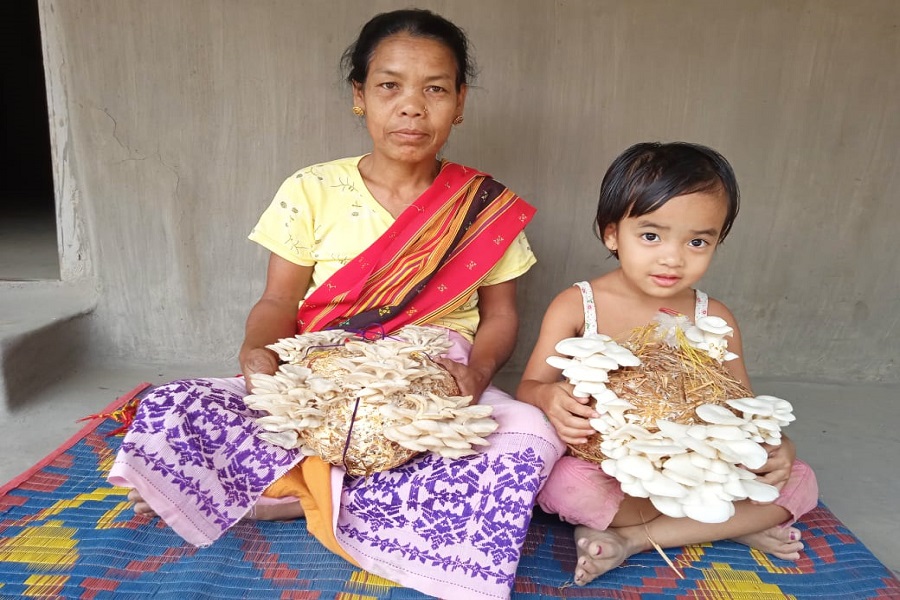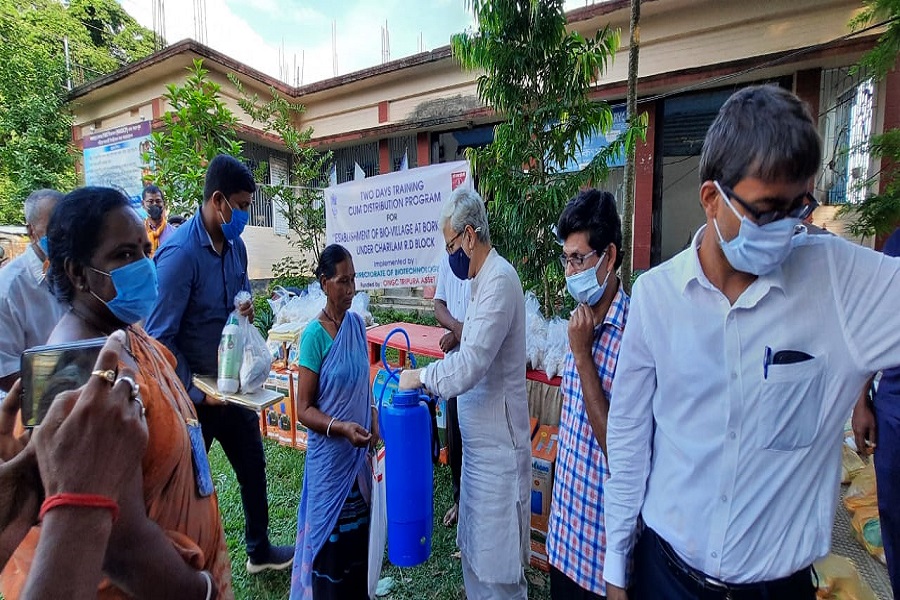Tripura’s ‘bio-villages’ aim to provide sustainable livelihood opportunities: Deputy CM
Agartala, Sep 10 (FD) The Tripura government has embarked on a mission to provide sustainable livelihood opportunities in rural areas through its ‘bio-village’ project, Deputy Chief Minister Jishnu Dev Varma said.
Five such villages – replete with bio-gas power plants, improved livestock breeds, solar-powered agricultural equipment and energy-efficient electrical devices – have been established in Sepahijala district and five more will be set up soon, he said.
The project has led to a monthly increase in household income by Rs 5,500, Dev Varma said, adding that over 500 households have been benefitted.
He said farmers have been taught simpler techniques of mushroom cultivation and installation and maintenance of biogas units and bio-composting.
The project aims at ensuring holistic socio-economic development among rural communities through the use of climate-friendly technologies, he said.
“It has been a successful project and we will try to replicate the model in more villages as it is environment-friendly, sustainable, healthy and beneficial for the rural people,” Debbarma told reporters.
Forty-year-old Sumita Debbarma, a resident of tribal hamlet Borkurbari in Sepahijala district, was happy as she could earn around Rs 20,000 by selling four piglets of Hamshire breed in the local market.
She also sells ducklings of Khaki cambel breed, earning an additional Rs 6,000 per month, thanks to the ‘bio-village’ initiative of the Department of Biotechnology.
Septuagenarian Gurudas Debbarma said he was provided with a solar pump for irrigation with which he cultivates vegetables and crops throughout the year, enhancing his income.
 Anjan Sengupta, Senior Scientific Officer of the Directorate of Biotechnology said that the project has been slightly modified for implementation in the next five villages.
Anjan Sengupta, Senior Scientific Officer of the Directorate of Biotechnology said that the project has been slightly modified for implementation in the next five villages.
“The bio-village concept encourages organic agricultural practices in a particular location with other supporting eco-friendly agricultural components. But our concept is aimed at ensuring socio-economic development for sustainable growth. It also focuses on providing multi-entrepreneurial support to minimise the risk of failure due to natural disasters,” he said.
“The modified bio-village 2.0 concept envisages wholesome participation of villages and provides autonomy to beneficiaries for planning, designing and selecting components of their choice,” Sengupta said.
Villagers can choose from multiple eco-friendly components for obtaining maximum returns in terms of money as well as other indices such as comfort and happiness.
The project, which was initially started as a pilot in one village, has now been expanded and it enhances village economy as a whole, he said.
The project offers options such as the establishment of biogas unit, solar pump, street light biomass stove, biotech kits that comprises bio-fertiliser and pesticide for agriculture, and animal husbandry and pisciculture.
Beneficiaries can choose four-five components as per available resources, potential or interest.
“Borkurbari, 5 km from Bishramganj Bazar, is probably the first tribal village in India that has been modified into a bio-village. Locals are very happy with the initiative,” Sengupta said.
Most of the women beneficiaries have become experts in mushroom cultivation, providing them with additional income, he said.
Bio-villages such as Das Para, Kharangsingh Para and Fatikcherra are reshaping the economic condition of people for sustainable development, he added.